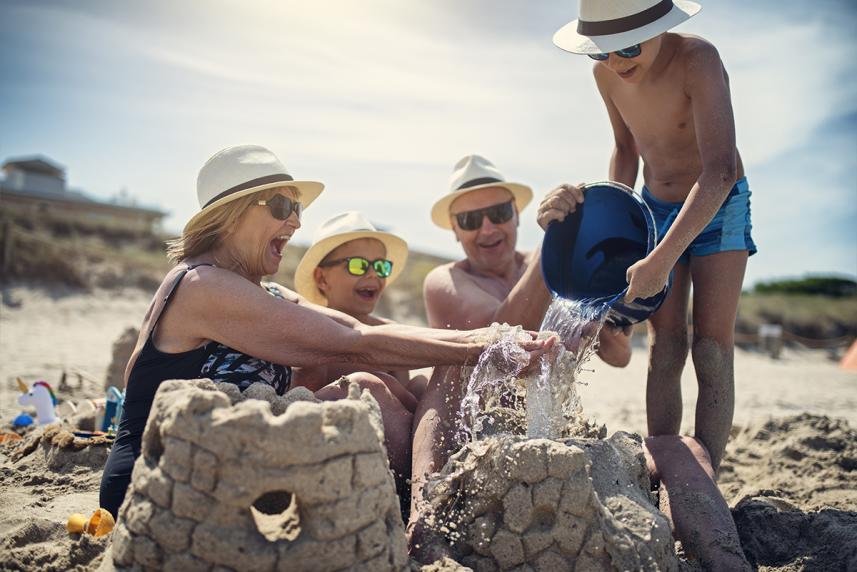3 smart summer skin care strategies
Use these tips to avoid damage from sun, heat, and water.

Relaxing outdoors is one of the best parts of summer, but it can also be bad for your skin. Sun, heat, and water are the main causes of skin damage at this time of year. To keep skin safe, use these tips from Maral Skelsey, MD, director of the Dermatologic Surgery Center in Chevy Chase, MD. And remember to consult a medical provider if you experience a severe sunburn.
Q: What skin problems can occur in summer?
“Avoiding excessive sun exposure is the number one concern in the summer,” Dr. Skelsey says. Overexposure to the sun can lead to skin cancer, which is the most common form of cancer in the U.S., according to the Centers for Disease Control and Prevention. Heat rash, acne, athlete’s foot, and other skin conditions can also occur or worsen in the summer months because of heat and water exposure, Dr. Skelsey says.
Q: What’s the best way to shield skin from the sun?
The sun’s rays can cause skin damage even when it’s cloudy. And contrary to popular belief, a “base tan” isn’t healthy for you. Any bit of tan is a sign of sun damage.
Your best bet is to apply a broad-spectrum, waterproof sunscreen with an SPF 30 or higher at least 15 minutes before going outdoors. Reapply every 2 hours of after swimming or sweating. Be sure to protect neglected spots: scalp, ears, lips, neck, and toes. Men often get skin cancer on their ears, and women who wear sandals are at increased risk of skin cancer on their feet. For tough-to-reach areas, like your scalp, you may want to use sunscreen spray rather than lotion.
For extra coverage, wear a wide-brimmed hat and sun-protective clothing, Dr. Skelsey says. It’s also a good idea to wear sunglasses with UV protection to keep your eyes safe.
Q: How can you protect your skin from the heat?
Heat and humidity can irritate the skin and can even lead to rashes in the groin area. Keep cool by wearing light, breathable clothing, especially when exercising. Showering and putting on clean, dry clothes after exercising can also help.
To avoid athlete’s foot, wear sandals at the pool, and take shoes off after exercising. Always dry your feet before putting on shoes, too.
Q: How can you keep skin healthy at the pool or beach?
Chlorine in pool water and salt in ocean water can dry out your skin. Rinse off after a swim, dry yourself with a towel, and reapply sunscreen. When you go indoors, shower and apply moisturizer to keep skin soft. Moisturizers with aloe vera or soy are a good choice because they can also help cool skin.


